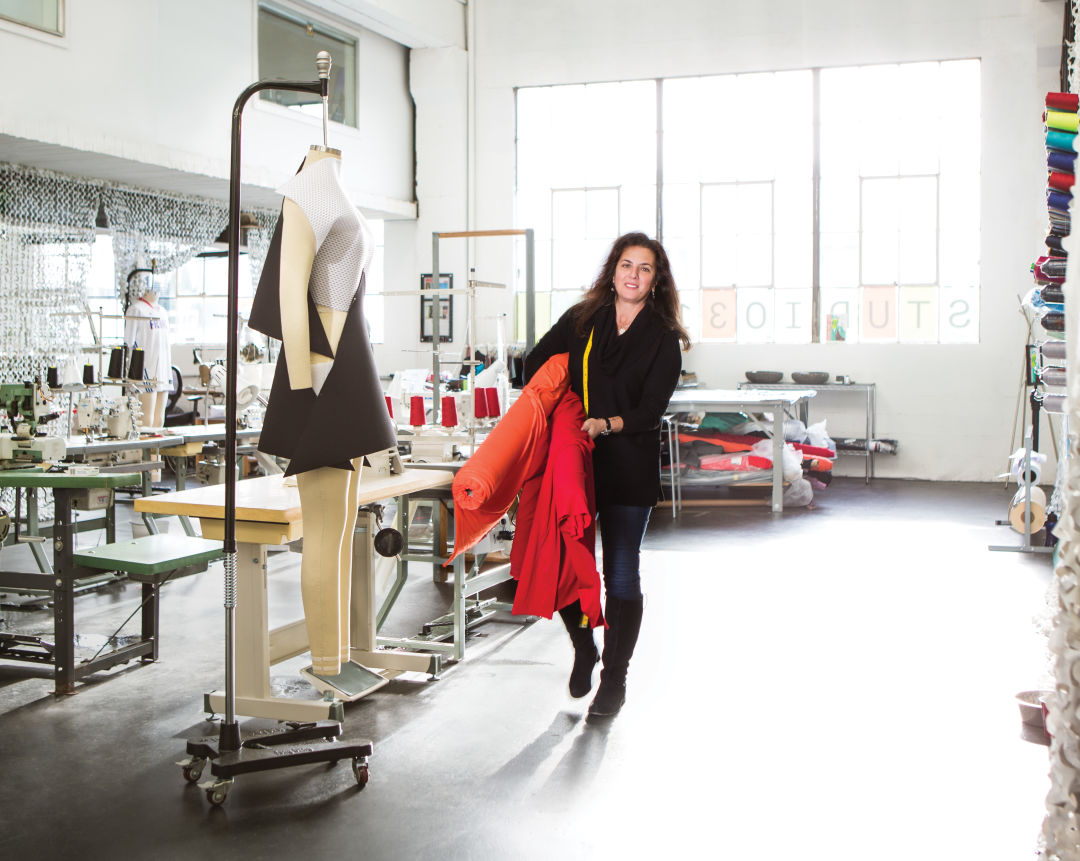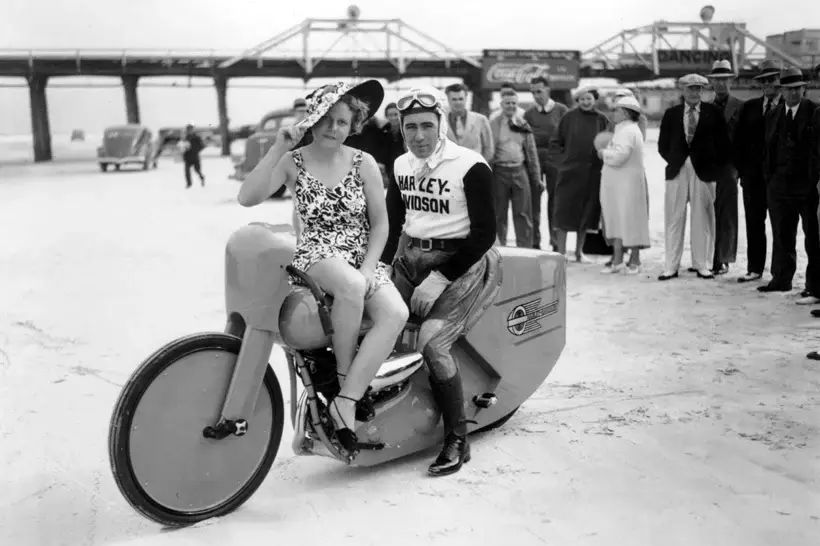This Portland Fabric Lab is Testing the Fashion of the Future

Image: Christopher Dibble
Elizabeth Lemay whips out a completely waterproof jacket, which she uses to demonstrate the power of seam tape. She then roams from a brief, brow-raising allusion to her work with lingerie for pole dancers into a close examination of a Balenciaga top and its no-sew fabric bonding technique.
These are the tools of the 51-year-old ex-Nike product developer’s trade, and prime examples of the fusion of fashion, athletic performance, and technology at Studio 317. For two years, LeMay’s 3,800-square-foot fabric lab in Southeast has guided would-be entrepreneurs and old pros through the creative and technical process of creating apparel. If you want to bring forth a new kind of clothing, LeMay’s studio gives you the power tools: multithread sewing machines, bonding contraptions, and lasers.
This is the kind of detailed attention to garment making that large companies get from their overseas factories in exchange for promising high-volume production. LeMay’s studio is affordable and, most important, much closer.
“Anyone can have an idea,” she says. “To be able to sit down and say, ‘Yes, your idea is viable, and yes, we can help you make it happen,’ finding solutions with them not for them—it’s a super exciting thing.”
After nearly 17 years working with Asia’s biggest factories for Nike, LeMay took her experience to the local level in February 2014. (Upon meeting a friend for dinner the night she decided to go it alone, LeMay parked before an address sign that read “317,” coincidentally matching her birthdate.) Her first client, a lacrosse player who needed a place for his phone while practicing, materialized thanks to a mutual acquaintance who simply said, “Go see Elizabeth.”
Since then, she’s constructed pockets into compression shorts, designed luxurious running wear, and magicked together the Intel Curie–powered smart sports bra that debuted at New York Fashion Week in September. Nike’s galactic budgets are a thing of her past. Still, her connections are intact—she has samples of fabric, buttons, zippers, and snaps from factories around the world. Even her old employer rented out the space for three days.
Next up: expanding her services to include production. With many factories booked solid by sportswear giants, smaller agencies are left to cope with inefficient turnaround. And with no apparel production trade schools in town, local manufacturing is in dire need of manpower. LeMay hopes to open a night school to fill that void.
“There’s a growing need for factory workers here in Portland,” she says. “We just became the no. 1 sportswear city, but where are the operators? We’re trying to solve the problem from the ground up.”




